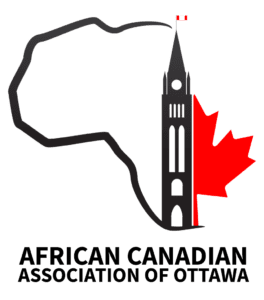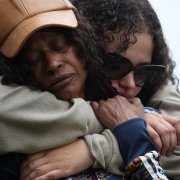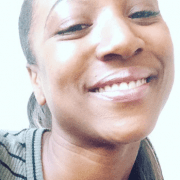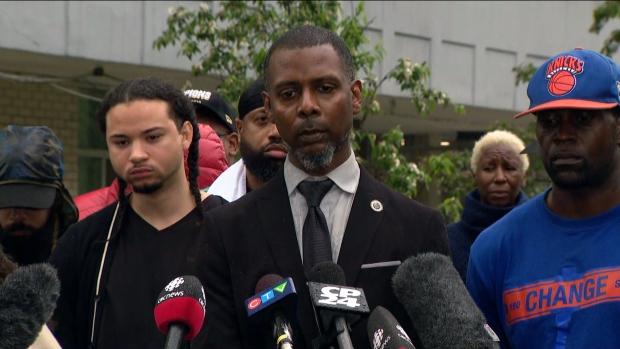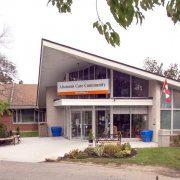May 28, 2020
STATEMENT ON THE DEATH OF REGIS FROM THE KORCHINSKI-PAQUET FAMILY
On Wednesday May 27, 2020 at approximately 5:00 pm a 911 call was made by a concerned mother, Claudette Beals-Clayton, for the safety and well-being of her child Regis Korchinski-Paquet.
Regis was in distress over a family conflict and her mother sought police assistance to bring calm to the situation.
Once police arrived at the residence they met her mother Claudette, Regis and Reece Korchinski-Beals, her brother in the hallway of 100 High Park in Toronto.
Claudette pleaded with police to provide assistance to her daughter and take her to CAMH to provide mental health support, as Claudette did not want the problem to escalate where it became unsafe.
Words were exchanged between Regis and the police officers, and Regis stated she had to use the bathroom and went into her apartment.
Her brother who was present, witnessed multiple police officers enter the unit after Regis went in.
When her brother attempted to go in after his sister he was stopped by police from entering the unit.
After approximately 1-2 minutes her mother and brother heard commotion in the apartment and then heard Regis cry out “Mom help, Mom help, Mom help.”
After that Mother and Brother heard silence.
Eventually an officer came out of the unit, knocked on the neighbour’s door, and stated to the family that she is over at the neighbour’s house or in the unit below.
After a few moments the mother then asked the officers if she is on the ground.
An officer went into the unit, then came back out and told her mother yes she is on the ground.
The family is distraught over the senseless loss of life and wants Justice for Regis.
The family wants answers to what happened. How can a call for assistance turn into a loss of life?
The family wants to ensure camera footage from hallway is secured by the SIU.
The family is extremely concerned that in recent times people with mental health issues across North America are ending up dead after interactions with the police.
D’Andre Campbell called for assistance on April 6, 2020 in Peel region and ended up being shot dead.
There has been a large outpouring of support online in the community, which is a testament to Regis’ effect on people.
She was proud of her Ukrainian and Nova-Scotian heritage, she was a talented gymnast, and used her skills to teach children and give back. She volunteered selfishly at her church and was a well known pillar of the congregation.
She is loved and will be missed by her Father Peter Korchinski, Mother Claudette Clayton-Beals, sisters Shyna, Shantiga, Renee, brother Reece, and her 12 nieces and nephews.
A GoFundMe page has been set up to assist the family.
All inquiries can be directed to info@maatlegal.ca
